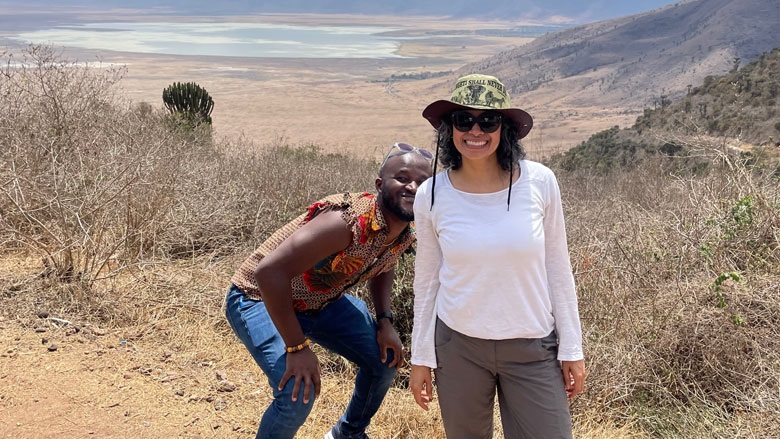Our experts Amparo Palacios-Lopez and Akuffo Amankwah are the brains behind the recently released Tanzania National Panel Survey. They were on the road when we reached out but happily agreed to tell us about their work.
- Akuffo and Amparo about Living Standards Measurement Study
We are part of the Living Standards Measurement Study (LSMS) team, housed in the Data Production and Methods Unit of the World Bank’s Development Data Group. The LSMS is the flagship household survey program focused on strengthening household survey systems in our client countries and improving the quality of microdata to better inform development policies.
- You recently released a big set of data. Why is it important?
The fifth wave of the Tanzania National Panel Survey (NPS) is a high-quality household-level dataset that helps monitor poverty dynamics, track the progress of national poverty reduction strategies, and evaluate the impact of other national-level government policy initiatives. This release includes information on living standards, agriculture, labor, and household enterprises. It allows you to see correlations between access to quality jobs and improvements in the quality of life.
All five waves of NPS data have been available online over the past 15 years in the World Bank Microdata Library and the National Bureau of Statistics website. The data set has been downloaded over 12,000 times since 2010! We know that policymakers, policy analysts, academics, researchers, and economists around the world widely use this data. Each round of the survey has over 2000 downloads.
- Please tell us about your work at the country level.
We work with National Statistical Offices (NSOs) and sometimes with academic institutions in our client countries. We coordinate with our Poverty, Education, Energy, Agriculture, Social Protection, and other Global Practices (GPs), as well as the Bank’s country office teams, so we can tailor advisory services and analytics and ensure that our products feed into the World Bank country programs.
Over the years, we have built strong relationships of trust and respect with NSOs. The NSOs understand the local context, their constraints, and the things that have worked well in previous surveys. We have the knowledge and experience of international best practices and the perspective of the users of the data. Working as a team has allowed us to learn from the NSOs and share this knowledge with others.
- Can you describe the process of data collection in Tanzania?
The LSMS team provides technical assistance to the Tanzania National Bureau of Statistics and the Zanzibar Office of the Chief Government Statistician to implement different household surveys, including the NPS.
Each wave of the NPS includes the following stages. Planning and preparation begins about one year before the start of data collection. This stage involves questionnaire design and programming, sample design, recruitment and training of field staff, and other tasks. During this stage we consult with relevant sector ministries, research and academic community, World Bank GPs, CMU, and other partners. We also set up data quality control systems to obtain the final data of the highest quality. The fieldwork takes about 14 months, including regular data collection and tracking of households that were not interviewed but were included in previous rounds. Following the fieldwork and data cleaning, we conduct workshops to analyze the data and produce a report. Once the report is finalized, the data is anonymized and released for public use. We usually disseminate the data 6-12 months after the completion of fieldwork.
- What was the hardest thing about this round?
This wave of the National Panel Survey took place during the pandemic. Data collection started before we were allowed to travel. We could not join some activities, such as interviewers training and monitoring fieldwork, and had to develop survey materials remotely. It was difficult, but in the end, we were glad to see the Tanzania and Zanzibar statistics offices go through the entire process with less technical assistance from us. It confirmed that the statistical capacity building our team has done over the years paid off.
- Were there any funny moments?
Definitely! The local team is very lively and all the meetings with them were always full of laughter, especially when we tried our few Swahili words. Additionally, we always try to include fun activities in our work program. We go on hikes and safaris and enjoy leisure time with our NSO staff.
- What is next on your horizon?
Our goal is to see the Tanzania National Bureau of Statistics graduate from our assistance and become one of the most capable NSOs in the region. Our dream is to reach the point when all African countries independently produce regular high-quality data.
- Any parting words?
We encourage our colleagues in AFE and AFW regions to continue leveraging the available LSMS data for their programs as we have lots of high-quality data about Africa, and we always welcome opportunities to collaborate.
